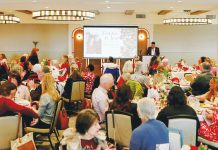Asking shoppers to think twice about finding the lowest possible price during a recession (I find the term “jobless recovery” insulting) might seem like a nonstarter. After all, non-wealthy families everywhere have had to tighten the belt in the past few years, so shopping for bargains is a no-brainer.
Right?
It’s not that simple. First of all, cost and value are two different things. A $20 pair of shoes that quickly wears out or gives you backaches certainly is cheap; you’ll just have to replace them sooner and may have to factor in the cost of a chiropractor visit. Same thing with fast food: That 99-cent cheeseburger might fill you up, but years later, after regular stops at the drive-thru, you might end up paying more in medical costs, not to mention a diminished quality of life.
Research has shown that meaningful experiences produce far more happiness than the acquisition of material things, while chronic hoarders typically feel overburdened and depressed. So it is possible to cut back on our volume of stuff, acquire better-quality goods when it counts and be happier at about the same cost of accumulating a bunch of cheap stuff.
And those are just the selfish reasons for practicing what we might call “conscious consumption.”
We also need to consider the social and environmental costs of purchased goods, which are almost never reflected in the retail price. The Toyota Prius hybrid has become the symbol of eco-consciousness; unfortunately, the so-called “rare earth” elements used for the batteries not only rely on a heavily polluting extraction method, but also come from countries that lack environmental oversight and often violate the human rights of their people.
The ore containing these rare-earths also contains uranium and thorium, radioactive substances that must be handled accordingly (but often aren’t). Rare-earth substances are rare, as the name implies, which means the market for sustainable cars will need a more sustainable plan soon.
Buying a hybrid still might be a worthwhile trade-off when compared to the carbon footprint of the typical internal combustion engine — the point is to be conscious of these very real consequences of our purchasing decisions.
The toy industry offers another example of hidden costs. An estimated 250 million children between the ages of 5 and 14 work in factories — often against their will or in otherwise inhumane conditions — to make a variety of consumer goods, including toys. The cruel irony of this arrangement is clear. Countries known for using child laborers to make toys include China, Malaysia, Thailand and Vietnam.
There are countless other examples. The key things to remember are that a lot of energy and waste go into most manufacturing processes; real people, often in other countries, are affected by our everyday buying decisions; and when things are tossed in the garbage, they don’t disappear from the Earth.
Thinking about what we really need is a good start, while buying used goods saves money and minimizes negative impacts. When we buy new things, we should look for quality as well as integrity with respect to social and environmental impacts. We can also learn to share tools, cars and other goods with friends and neighbors. For those who like free things (and who doesn’t?), there’s Freecycle San Lorenzo Valley.
Want to learn more about the secret life of garbage and what it tells us about our consumer culture, while meeting interesting locals? Transition SLV will show the documentary “Garbage! The Revolution Starts at Home” at 7 p.m. Friday, Feb. 25, at the Satellite Telework Center, 6265 Highway 9, in downtown Felton. A $5 donation is encouraged.
Steve Tanner is a writer and journalist living in Ben Lomond with his wife, daughter, dog and four hens. He is on the steering committee for Transition San Lorenzo Valley.












